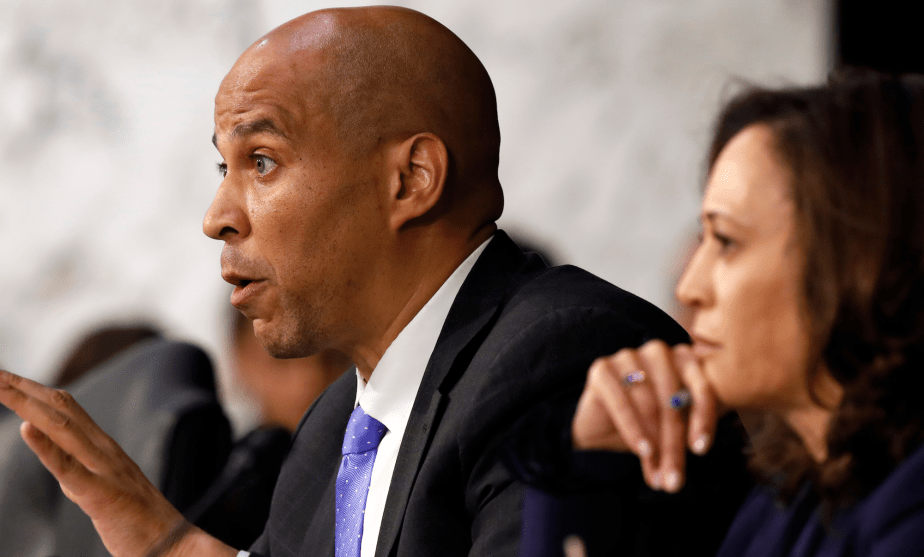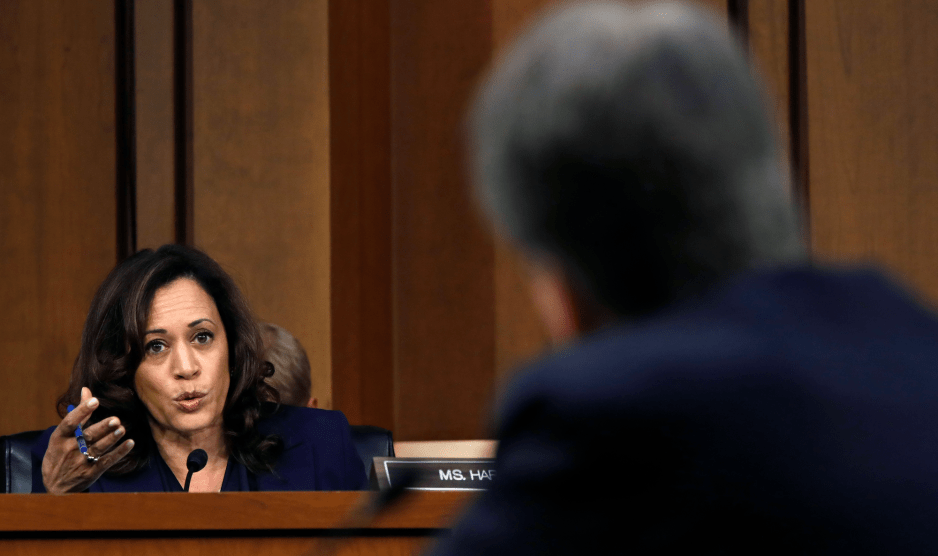
President George W. Bush watches the swearing-in of Brett Kavanaugh as judge for the DC Court of Appeals in 2006.Pablo Martinez Monsivais/AP Photo
On the third day of Supreme Court nominee Brett Kavanaugh’s confirmation hearing, Sen. Cory Booker (D-N.J.) released previously confidential emails from Kavanaugh’s time working in the George W. Bush White House. One email chain shows that Kavanaugh was involved in helping craft a Supreme Court brief in which the Bush administration supported a government affirmative action program. But it also makes clear that Kavanaugh took a dim view of the government’s efforts to support minority businesses in federal contracting.
Adarand Constructors v. Pena was a landmark 1995 Supreme Court decision. In it, the court took a big swipe at the federal government’s programs to give preferences in contracting to minority companies. The case was brought by a white-owned Colorado Springs company that had been denied a Department of Transportation subcontract, despite coming in with the lowest bid, because the government gave preference to a minority-owned company.
Adarand sued, arguing that it had been unconstitutionally discriminated against. It lost in the lower courts and then appealed to Supreme Court, which overturned the lower courts and required the government to set strict limits on its use of race-based affirmative action programs in contracting. The case went back to the 10th Circuit Court of Appeals to reconsider in light of the new guidelines from the Supreme Court. The 10th Circuit ruled in favor of the Department of Transportation, and in 2001, Adarand asked the high court to revisit the issue, even though by then, the government had radically changed the way it handled minority business contracting to comply with the Supreme Court decision.
Kavanaugh elaborated on his personal views about the affirmative action program in a March 2001 email in which he ran through various options for the administration and the solicitor general’s office to approach the case. He suggested that the solicitor general refuse to defend the program altogether—a move that would have been highly unusual at the time. He recognized that White House pressure on the solicitor general to take a particular position would have been considered unseemly, and he encouraged the White House to defer to the judgement of the Justice Department and the solicitor general on the assumption that they’d be hostile to affirmative action anyway.
Much to the surprise of civil rights leaders—and to the dismay of many of the administration’s conservative allies—the Bush administration took the same position the Clinton administration had and asked the Supreme Court to uphold the Department of Transportation’s minority contracting regulations. In a 2001 email chain with former Attorney General Alberto Gonzales, his deputy Timothy Flanigan, and Noel Francisco (then an associate White House counsel and now President Donald Trump’s solicitor general), Kavanaugh weighed in on the government’s brief in the case. While he made a few suggestions for improving the government’s arguments, it was clear he was skeptical of the government’s affirmative action program, which he predicted the court would strike down. He wrote:
The fundamental problem in this case is that these DOT regulations use a lot of legalisms and disguises to mask what in reality is a naked racial set-aside. I have no doubt that Rehnquist, Scalia, Thomas, and Kennedy will realize as much in short order and rule accordingly…I assume O’Connor will so rule as well, although that is less certain.













